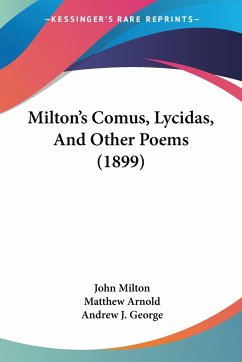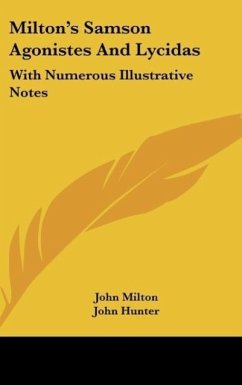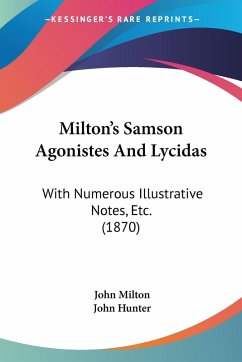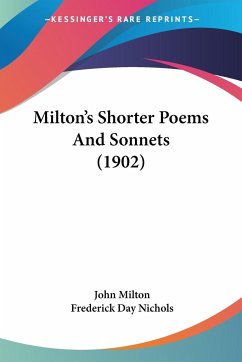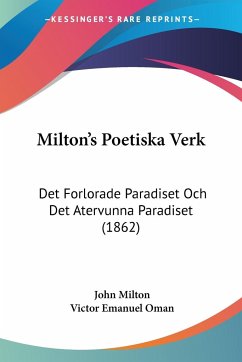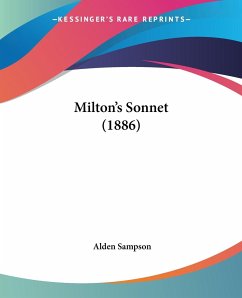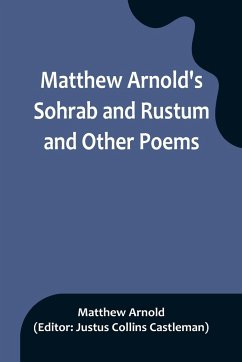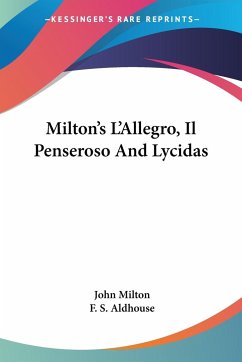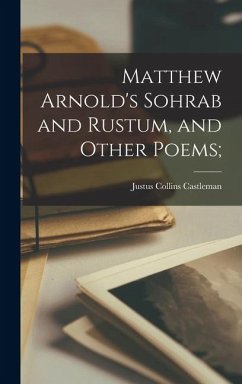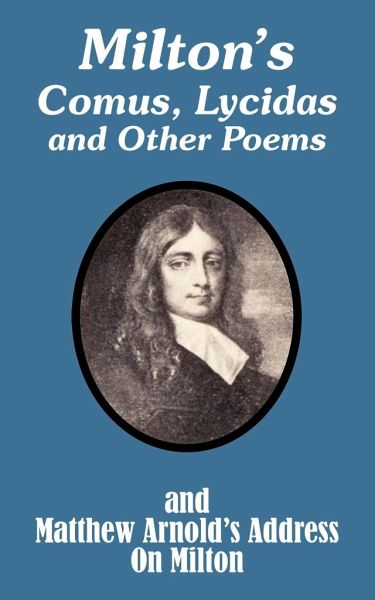
Milton's Comus, Lycidas and Other Poems And Matthew Arnold's Address On Milton
Versandkostenfrei!
Versandfertig in 1-2 Wochen
16,99 €
inkl. MwSt.

PAYBACK Punkte
8 °P sammeln!
Included in this edition are several poems to give a proper introduction and conclusion to Comus, and to reveal the element of unity and growth. The notes furnish biographical, historical, and critical material to give an insight into the forces which went to form the mind and art of the great poet. This volume also includes the most significant of the many estimates of Milton's greatness, including Matthew Arnold's address at the unveiling of the Milton Memorial Window in St. Margaret's Church, Westminster.



